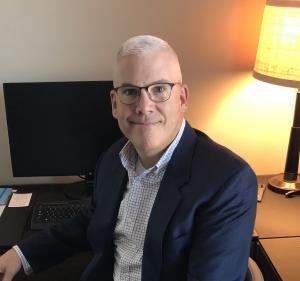We are experiencing one of the most challenging times for the educational industry given the current pandemic related to the COVID-19 outbreak. With schools closing and travel programs being rescheduled or canceled, the impact of this crisis will likely be felt for months or years to come for some independent schools.
Nearly every aspect of our institutions is affected. In the past week, I have been asked to review enrollment contracts (for return-of-funds provisions), insurance policies (many of which exclude coverage for virus-based impacts) and employee contracts (to determine which classifications of employees are allowed to work from home for continued pay).
In the midst of the chaos of the last week, a client asked me, “How should this crisis affect the roles and duties of management and the board of trustees?” My first thought was that the crisis does not really impact the roles and responsibilities of either group, but that this is a good time for senior leaders and board members to convene and discuss how they will interact during and after this crisis and how their roles may change due to this (or other types of) crisis.
There are differences in roles and responsibilities for board members and management during a crisis period that will impact all schools versus operating in a normal or traditional business cycle. Both management and the board have heightened duties and roles during a crisis and may be called upon to communicate and act in different ways.
We learned to “Never waste a crisis” in 2008 during the global financial crisis that taught us how to revise budgets and take on expense management efforts with more rigor. This also is the time to generate a discussion among the board and management to clearly articulate the needs and duties for both groups during times of crisis and uncertainty.
When developing business continuity plans in times of crisis, management typically considers the effects of various natural or man-made disasters. These challenges may include malicious activity, IT disruptions and natural disasters – challenges that can usually be mitigated by focusing on immediate recovery efforts.
With the impact of COVID-19 globally, we are experiencing a disruption that is affecting institutions in a manner that is unique and highly uncertain. This uncertainty provides us with the opportunity to discuss how to proceed before, during and after challenges that may have been previously unforeseeable.
Pandemic planning presents unique challenges to all schools. Unlike a natural disaster, which nearly all schools have faced before, the impact of a pandemic is much more difficult to determine because of the anticipated difference in magnitude and duration.
The nature of the global economy virtually ensures that the effects of a pandemic event will be widespread and threaten not just a limited geographical region or area, but potentially every continent. In addition, while traditional disasters and disruptions normally have limited time durations, pandemics generally occur in multiple waves, each possibly lasting for months. As such, independent schools may experience enrollment impacts, financial challenges, staffing shortages, vendor disruptions, food shortages and absenteeism. These differences and challenges highlight the need for schools to plan as a community for a pandemic event or other types of unique impacts.
Board Responsibilities
- The board of directors is responsible for overseeing the development of an emergency plan, which should include a pandemic plan, and any other foreseeable challenges that the school may face.
- The board may want to develop a committee to work with management to develop and approve the institution’s written plan and ensure that leaders are investing sufficient resources into planning, monitoring and testing the final plan.
- Now is a good time for board members to work with their peers at other institutions and develop ways to share best practices.
Management Responsibilities
- Senior leaders on campus are responsible for developing emergency operations plans and translating those plans into policies, procedures, and training opportunities for their school community.
- Senior leaders are also responsible for communicating the plan throughout the school (and to parents and even alumni) to ensure a robust understanding of the key elements of the plan and so employees understand their responsibilities.
- Finally, senior leaders are responsible for ensuring that the plan is regularly tested via table-top and other exercises and that the plan remains updated and applicable to the scope and complexity of the school’s needs.
But, what are the shared responsibilities of senior leaders and board members? After speaking to numerous colleagues in the industry and asking them for tips on how campus leaders and board members should work together, I assembled these “best practice” tips from experts across the country:
- Keep calm.
- Plan as a team and support one another continuously in words and deeds.
- Develop a consistent set of talking points and do not veer from them without good reason.
- Realize that mistakes will be made and decision-making will be much more rapid and based on far fewer data points than in times of normal operations.
- Accept that many important decisions will be made based on conflicting or scant data, and common sense in alignment with a core set of principles (e.g., student health and wellness first) will be required.
- Draft those core principles and share them; put them in your emergency plan to give the community a guiding light regarding how the leadership will make decisions going forward.
- Recognize that this type of challenge is not only one that impacts finances and information technology but could be a significant risk to the entire business model for an independent school.
- Involve senior management from all functional areas, including faculty leaders, administration, human resources, dining, insurance, legal, IT, support functions, parent’s groups, alumni, etc.
- Recognize that communications will be active but may at times not answer every question for every constituent group; be comfortable with leaving some questions unanswered but tell your audience that you are working to get those answers so they understand that as leaders, you know the needs of the community.
- Expect daily interaction with one other, which may be necessary for weeks or months; remain patient and supportive, as mistakes will be made with the benefit of hindsight.
- Be good spokespersons when needed and asked to deliver difficult and challenging messages to parents and students.
- Communicate directly with upset parents when asked.
- Support the administration with one voice; support the board as a group.
- Maintain financial commitments and understand that the planned budget may be impacted significantly with unforeseen expenses.
This is an unprecedented time in our country and world. Strong leadership has never been more important from every institution: our government, faith institutions, communities and, especially, our schools. Without knowing how long this pandemic will last, it is important for senior leaders and board members to actively communicate and focus on the longer-term horizon for their institutions.
 About David Hanson
About David Hanson
Prior to founding Winthrop & Associates, LLC, David spent 20 years serving academic and non-profit organizations, including serving in dual positions (chief financial officer and chief risk officer) for Phillips Exeter Academy, where he had responsibility for a $100M annual budget and all operating functions, as well as risk management. Prior to Exeter, David was the vice president (chief financial officer) and then senior vice president (chief operating officer) for Virginia Commonwealth University. He began his career in academic leadership at Emory University, where he spent ten years in a variety of roles leading to his appointment to dual positions as associate vice president for administration and special assistant to the executive vice president. David began his professional career practicing law.
David holds a bachelor’s degree in marketing, a Juris Doctorate (with highest honors), two master’s degrees (education and business), and a doctorate in higher education management (focused on financial resource allocation and governance). David is a member of Beta Gamma Sigma and Phi Kappa Phi academic honor societies and is a double alumnus of the Fulbright Specialist Program, having served institutions in Pakistan and Scotland.
David can be reached via email at david@winthropassociates.com.
Found value in this article? Read David’s previous post here.


